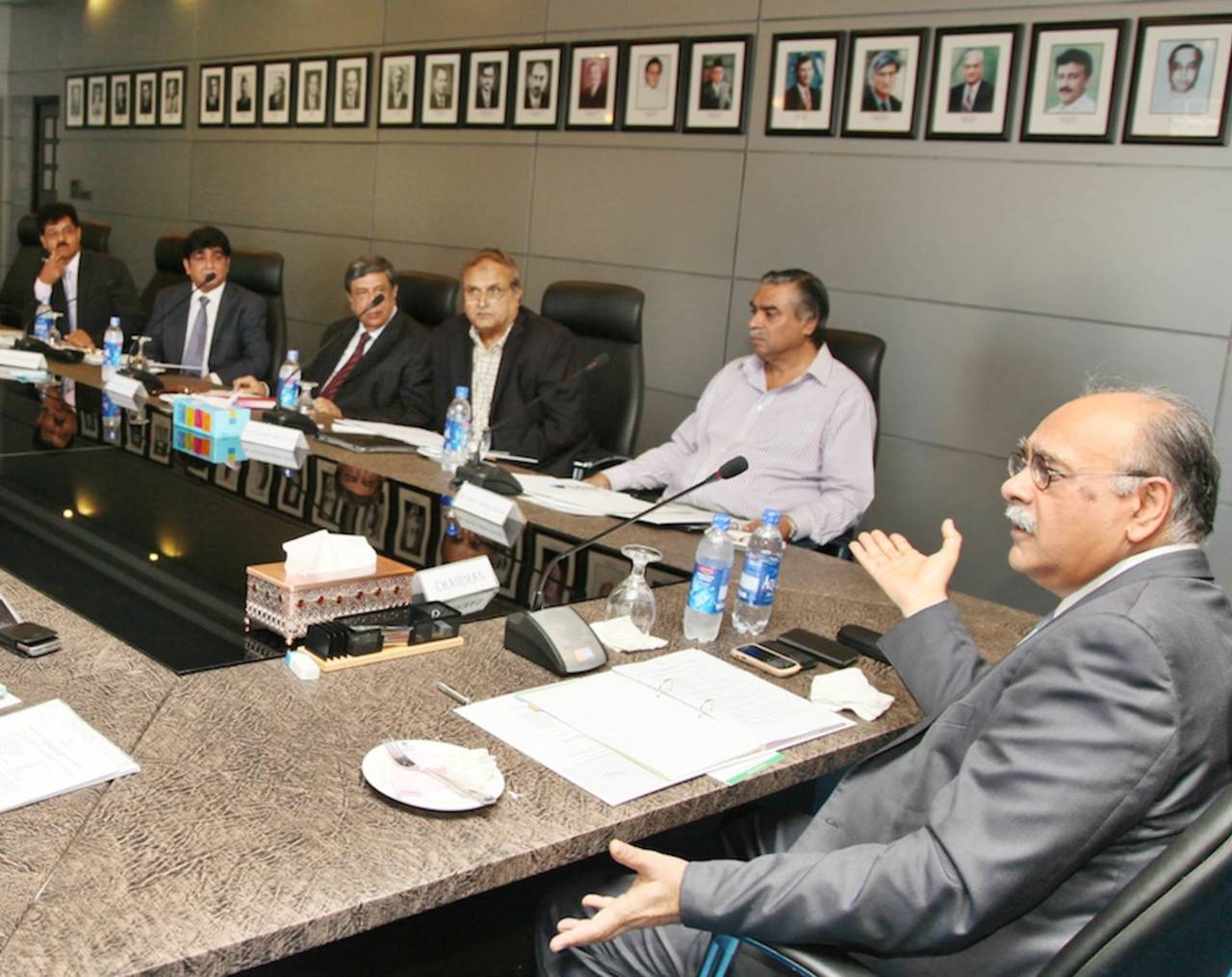Risk management, ever heard of it? If you have, you are probably wiser than Najam Sethi and his Pakistan Cricket Board. The board earned some praise for its
initial stand against the Big Three coup by India, Australia and England. There was even a sense of admiration: international cricket's most beleaguered country defiant against the game's richest and most powerful. We all love an underdog, don't we? It's no surprise that the PCB has now
fallen in line, but this week's explanation betrays a great malaise at the heart of Pakistan's cricket administration.
We can't afford to miss out on the money, says Sethi. All US$310m of it. Our survival depends on major international fixtures, says Sethi. Bilateral ties against India are a major chunk of it, says Sethi, positioning himself as a pragmatic man of principle. He talks a lot. Talk of equality, the glaring omission in the Big Three's plans, has disappeared. The Big Three did make some concessions but not much has changed in terms of equality. Pakistan was isolated, no international team would arrange a fixture against them for fear of damaging its own interests. No broadcaster was willing to commit to Pakistan's future international programme, since there wasn't one. No television meant no money. No money meant no principles, just an embarrassed, pragmatic crawl back into the bosom of the Big Three.
It's hard to blame Sethi or his cricket board for seeking a pragmatic solution, and to be clear, it isn't a representative cricket board, it is his cricket board. No business can function without income. The big money does come from major international fixtures and tournaments. A bilateral series against India is clearly the most valuable. Pakistan, isolated because of security issues, requires all the help it can get.
But it's wrong to ignore the deeper problems in Pakistan cricket, many of which are self-inflicted. In the good years, when television revenue was plentiful, before the isolation, what did Pakistan's administrators do with the income? Where was the investment in domestic cricket or grassroots cricket? Where was the investment in elite infrastructure? Where was the investment in developing a product of commercial value? Yes, of course, there was some of this, enough to qualify as lip service and to furnish business plans, but nothing in proportion to the millions of dollars that poured into the PCB's coffers. We can only imagine where it went.
Any sensible organisation, mindful of the risks associated with being so heavily dependent on one source of income, seeks others. Pakistan's cricket board has failed to do this. It is international cricket revenue or bust, and Sethi's board seems to have no other plan. Domestic cricket might not make the PCB rich but the sheer neglect of it ensures that it can't contribute to keeping the board afloat. Equally importantly, successive cricket boards have pursued a course of political isolation, which leaves little room for manoeuvre, of alternative fixtures or tournaments, when the more powerful countries don't want to play.
The picture emerges of a cricket board isolated for reasons of security and politics. Its chairman is prone to rash pronouncements, whether he is exposing the bankruptcy in Pakistan's financial plans or pleading for leniency on behalf of a player convicted of spot-fixing.
Sethi isn't solely responsible. The PCB is blighted by a series of leaders whose main purpose is posturing and headline-grabbing instead of fixing the deep-rooted problems in Pakistan cricket. There seems little ambition in Pakistan cricket administration beyond pocketing television revenue and basking in the reflected glory of its star cricketers. These aren't sustainable strategies. The risks are apparent. But the PCB, as ever, relies on the generosity of others.
Pakistan cricket requires a long-term plan for its development and financial health but it's a plan that has been too long coming. To be influential in international cricket, Pakistan require both cricketing and financial strength. The raw materials are available. The man with a plan is absent.
